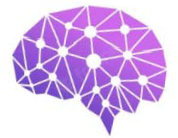
qEEG screening
Service code s9015
Short description
Alcoholism is defined as excessive and repetitive drinking of alcoholic beverages to the extent that the drinker is harmed or harms others repeatedly. The harm may be physical or mental; it may also be social, legal, or economic.
Scientific studies demonstrate that predisposition for alcoholism can be predicted from qEEG, hence qEEG screening is important.
Scientific research(1-6) demonstrated that qEEG has 75% positive and 74% negative predictive values with 61% sensitivity and 85% specificity for alcohol abuse relapse.
Results
By performing this qEEG screening you will get the information on:
- whether you have a qEEG pattern typical for alcoholism and
- what is a risk of developing alcoholism in the future.
Notes:
- The results of qEEG analysis are put in context of published scientific studies, the individual’s health history, complaints, symptoms and psychometric and other evaluations (if available).
- Present psychotropic medication use may affect the results.
To place a service order, use the following email:
References
- Almasy L. Quantitative risk factors as indices of alcoholism susceptibility. Ann Med 2003; 35: 337-343.
- Bauer LO. Predicting Relapse to Alcohol and Drug Abuse via Quantitative Electroencephalography. Neuropsychopharmacology (2001) 25 332-340.
- Cindy L. Ehlers, Evelyn Phillips, Ian R. Gizer, David A. Gilder, Kirk C. Wilhelmsen. EEG spectral phenotypes: Heritability and association with marijuana and alcohol dependence in an American Indian community study. Drug and Alcohol Dependence 2010; 106: 101–110.
- Coutin-Churchman P, Moreno R, Anez Y, Vergara F. Clinical correlates of quantitative EEG alterations in alcoholic patients. Clin Neurophysiol 2006; 117: 740–751.
- Edenberg HJ, Dick DM, Xuei X, Tian H, Almasy L, et al. Variations in GABRA2, encoding the alpha 2 subunit of the GABA(A) receptor, are associated with alcohol dependence and with brain oscillations. Am J Hum Genet 2004; 74: 705–714.
- Porjesz B, Begleiter H, Alcoholism and human electrophysiology. Alcohol Res Health 2003; 27:53-160.